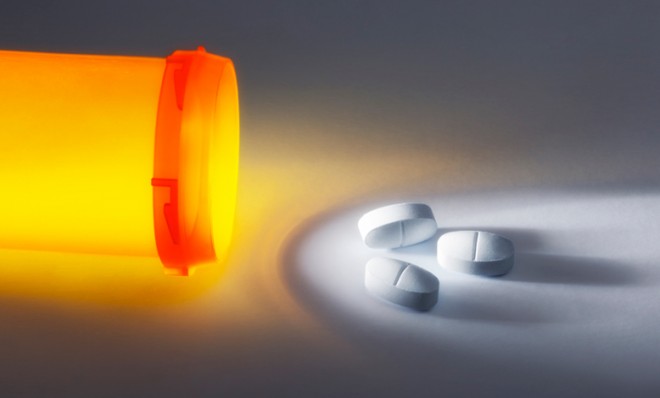The promises and pitfalls of a magic exercise pill
Researchers have discovered a special protein that mimics the physiological effects of a tough workout

A free daily email with the biggest news stories of the day – and the best features from TheWeek.com
You are now subscribed
Your newsletter sign-up was successful
The pipe dream of a do-it-all exercise pill isn't a new idea. Imagine the promise! No more gym locker rooms that smell like moist socks; no more fruitless five-mile runs, especially on hot summer days (looking at you, New York); no more obnoxious trainers hovering over you, twisting you into weird knots while asking you to lift a kettle bell.
Instead, your entire workout would consist of popping a pill and chasing it with a gulp of water.
A new study published in Nature Medicine highlights how close that promise is to becoming a reality. Researchers from the Scripps Institute in Florida found that injecting mice with a protein called REV-ERB accomplished many of the sought-after goals of regular workouts, including weight loss and increased metabolism, even if the rodents were categorically obese beforehand.
The Week
Escape your echo chamber. Get the facts behind the news, plus analysis from multiple perspectives.

Sign up for The Week's Free Newsletters
From our morning news briefing to a weekly Good News Newsletter, get the best of The Week delivered directly to your inbox.
From our morning news briefing to a weekly Good News Newsletter, get the best of The Week delivered directly to your inbox.
Additionally, in early 2012, researchers from the Dana-Farber Cancer Institute found that similar physiological changes could be induced in mice by artificially boosting a hormone called irisin.
A few major caveats: We don't know what kind of side effects such miracle pills would have on the body. And some of the tangential benefits of exercise — the self-imposed discipline, the sudden rush of mind-tickling endorphins, etc. — would be thrown out of the picture.
Still, it's an interesting proposition that could have profound effects on the way we stay healthy. Dr. Richard Gunderman, a health correspondent at The Atlantic and a professor at Indiana University, thinks it's a wonderful idea that "plays to all our strengths: Our love of efficiency, spirit of entrepreneurship, and deep longing to install physicians and scientists as the new priests of the age."
Many of [such a pill's] concerns can be readily addressed through the judicious application of a little good old American innovation. For example, sports stars can simply hawk their favorite brand of exercise pill, creating another basis for fan affinity. Americans who once developed self-discipline through exercise can start working crossword and Sudoku puzzles. We can make other sacrifices in life, such as getting to know our in-laws better. Pill-taking could easily be made into a group activity. [The Atlantic]
Gunderman's assumption that we will use our new free time to our own benefit may be too optimistic. But it's a striking argument.
A free daily email with the biggest news stories of the day – and the best features from TheWeek.com
There are other questions that will need to be asked as well: Will the pill be expensive, a privilege accessible only to society's upper crust? (Who can already afford luxuries like gluten-free diets, gym memberships, and personal trainers?) Is it safe for children, who, in the face of skyrocketing obesity rates, may need it the most? What happens if chiseled physiques are the standard, rather than the exception?
Of course, this is all predicated on an exercise pill becoming a reality. In the case with irisin, Harvey Lodish — a professor of biology and bioengineering at MIT, and a member of the Whitehead Institute for Biomedical Research — says adapting the hormone into a drug form suitable for human consumption may prove harder than anticipated. If we can't put it in a pill, "maybe it could be delivered via gene therapy," writes Karen Weintraub at MIT Technology Review. If that turns out to be the case, the treatment will likely stay expensive (and therefore exclusive) for quite some time.
On the other hand, it's not as if exercise will suddenly disappear overnight. Your legs aren't going anywhere. "I know there are probably plenty of people who would prefer" to pop a pill rather than jog a few miles, Dr. Thomas Burris, who worked on the REV-ERB study, tells the New York Times. But "exercise has so many health benefits," he says, and no drug can re-create all of them.
-
 What are the best investments for beginners?
What are the best investments for beginners?The Explainer Stocks and ETFs and bonds, oh my
-
 What to know before filing your own taxes for the first time
What to know before filing your own taxes for the first timethe explainer Tackle this financial milestone with confidence
-
 The biggest box office flops of the 21st century
The biggest box office flops of the 21st centuryin depth Unnecessary remakes and turgid, expensive CGI-fests highlight this list of these most notorious box-office losers